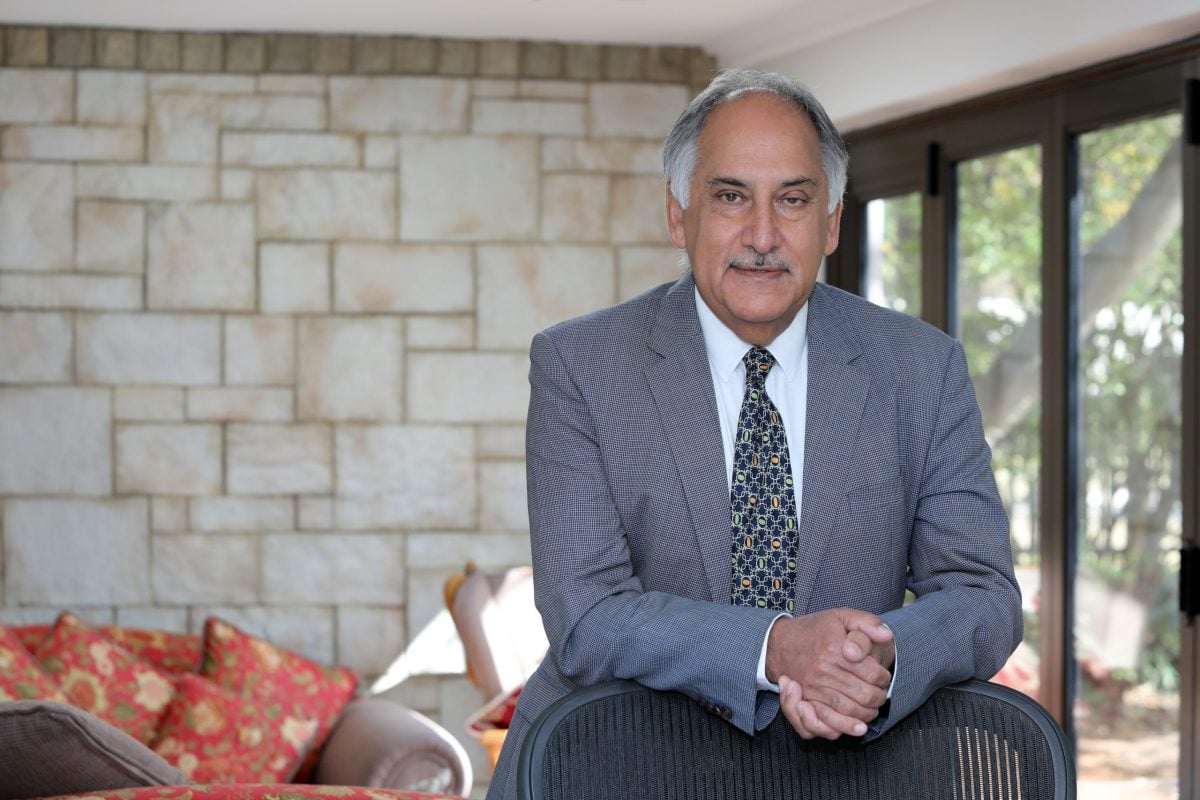With a “crazy” travel schedule spanning Ghana, the UK, the US, Saudi Arabia and his home base of South Africa in just a few weeks, Cas Coovadia is on a global mission to lobby countries around the world ahead of November’s G20 in Johannesburg. As “sherpa” of the B20 – the G20’s official dialogue forum for the global business community – Coovadia has spent months forging consensus among eight taskforces populated by business leaders from across the G20 nations.
Armed with 30 hard-won recommendations from the taskforces, he now seeks to persuade G20 governments – using every global forum possible – to adopt the measures when the politicians sit down together. Amid global trade turbulence, Donald Trump’s tariff wars and growing challenges to multilateralism, the voice of beleaguered businesses has rarely been more relevant. Coovadia was head of lobby group Business Unity South Africa until April, so has a history of coaxing reluctant politicians into backing the business community – a trick he hopes to repeat at the G20.
Forging global consensus
“I think that this is probably the first opportunity that’s presented itself for businesses and governments of the biggest economies to get together and talk about the current dynamics and what to do about it – so I think it’s a critical juncture,” he says.
“And from a B20 point of view it’s not necessarily business-to-business issues [that matter most], its policy development issues, and to actually get people from the G20 countries together to look at what the policy implications are of where the world is today – the whole range of issues ranging from trade to digital transformation and energy and so on – is a critical objective.”
The key to the B20’s work this year, says Coovadia, was ensuring that the forum is much more than simply a “C-suite talking shop”. Real-world impact is what Coovadia is aiming for. This, he says, meant gaining consensus as quickly as possible from a diverse group of leaders with sometimes competing interests and opinions.
A strong set of policy recommendations
“We’ve been very fortunate; the chairs we appointed for various taskforces are seasoned CEOs who have been involved in multilateral discussions. They’ve all headed or chaired global companies, they have the experience of negotiation and trying to reach agreement.
“Our guidance for the chairs from the beginning is that we don’t want consensus paralysis – have the debates, and if there’s no consensus after a couple of shots, then whatever the majority of the B20 countries feel will be the views of the B20.”
Where deadlock set in, Coovadia was prepared to intervene as sherpa. This “all helped to get us to outcomes that are worth more than the paper they’re written on,” Coovadia says.
The result is 30 recommendations spanning finance, trade, food security, energy, digital transformation, integrity, skills development and industrialisation. At the heart of these is an acknowledgment of the interests of host continent Africa, and the Global South more generally. Our hosting of the B20 is critical – we are the fourth consecutive host country from the Global South (following Indonesia, India and Brazil) before we hand back to the North. Bringing together C-suite businesspeople from the G20 countries as well as the rest of the continent – because we’ve been very clear that Africa is at the centre of this B20 – is important.”
Coovadia says that there has been an acknowledgement from B20 business leaders that recommendations which directly support Africa will help to raise all ships in the global economy.
“The reason we reached consensus on recommendations across the G20 countries is, I think, that other countries see the synergies between the growth of Africa and the development of the globe.
“There are some pretty good recommendations on financing, structures of financing, the way ratings agencies look at countries in the South without real data, promoting trade, and looking at AI and digitalisation from the scope of inclusion. We had a taskforce on industrial transformation and development, and we felt that is critical for our country [South Africa] and the continent – reindustrialising and ensuring we utilise the opportunities on the continent for the benefit of the globe.”
Policies that can actually be implemented
The other priority, Coovadia says, was deciding on policy recommendations that are implementable rather than fuel for protracted global debates. “We committed up front that we want these recommendations actually to be implemented and we want to be able to measure the impact. We say: here’s the issue, here’s the recommendation, here’s who should be implementing it.
“So if we look at the inclusion of digital infrastructure, right now 20% of people globally have access – if our recommendation is implemented by 2030, 80% should have access.”
Africa is at the heart of this year’s B20, and, as host, South Africa has an obvious role. All the task forces were chaired by South African business leaders, including executives from Standard Bank, Naspers and others. Coovadia’s former colleagues at Business Unity South Africa are acting as B20 “host organisation”.
But, Coovadia reminds us, “The B20 sherpa represents the B20, the business organisations and C-suite people within the B20 countries. The recommendations that come out are B20 recommendations, not African and South African.”
Nonetheless, Coovadia says the positions were warmly received by South Africa. “I met with [international affairs] Minister Ronald Lamola after we handed over the recommendations, and his initial view was that these recommendations resound with positions we are taking in South Africa and the G20, and we need to work together to try and get them reflected in the communiqué or whatever declaration comes out [of the G20].”
The US elephant in the room
But Coovadia knows that if the recommendations are to succeed, they must appeal to all the G20 governments rather than just those of the Global South. Winning the support of a sceptical US administration – which has demonstrated its disdain for South Africa’s hosting of the G20 and its agenda focusing on global equality – is critical.
“The trick here is obviously the US. I met the head of the US Chamber of Commerce in New York a couple of weeks ago – their job is a difficult one, not only in hosting next [the US will host the G20 in 2026], but they have to promote the recommendations with their government.
“And so before we finalised our recommendations we asked the US Chamber to cast an eye over all the recommendations and say, ‘is this position written in a way that makes it less difficult for them to advocate for?’ ”
Flight to fight
Having handed its recommendations to the G20 on 4 September – well in advance of the B20 Summit on 18-20 November and the G20 Summit from 22-23 November – Coovadia says there is plenty of time for lobbying the US and elsewhere.
“The reason we did that is that we have been spending all of September and beyond to lobby for the recommendations among G20 countries and stakeholders globally. My travel schedule for the last couple of months has been crazy – I’m leaving tomorrow for Ghana, London and Riyadh. We are using all the tools at our disposal, working with critical stakeholders, to get them to talk to their governments, and that’s the best we can do, and we’ll see where that ends up.”

 Sign in with Google
Sign in with Google 



